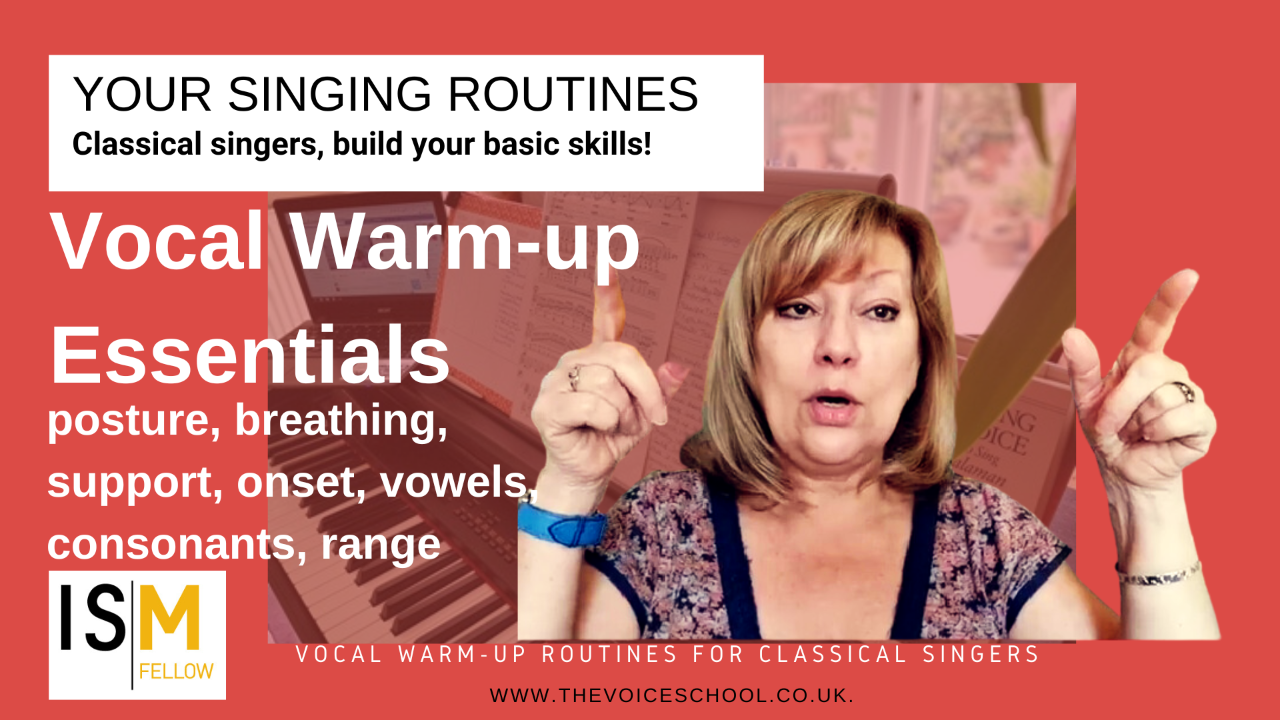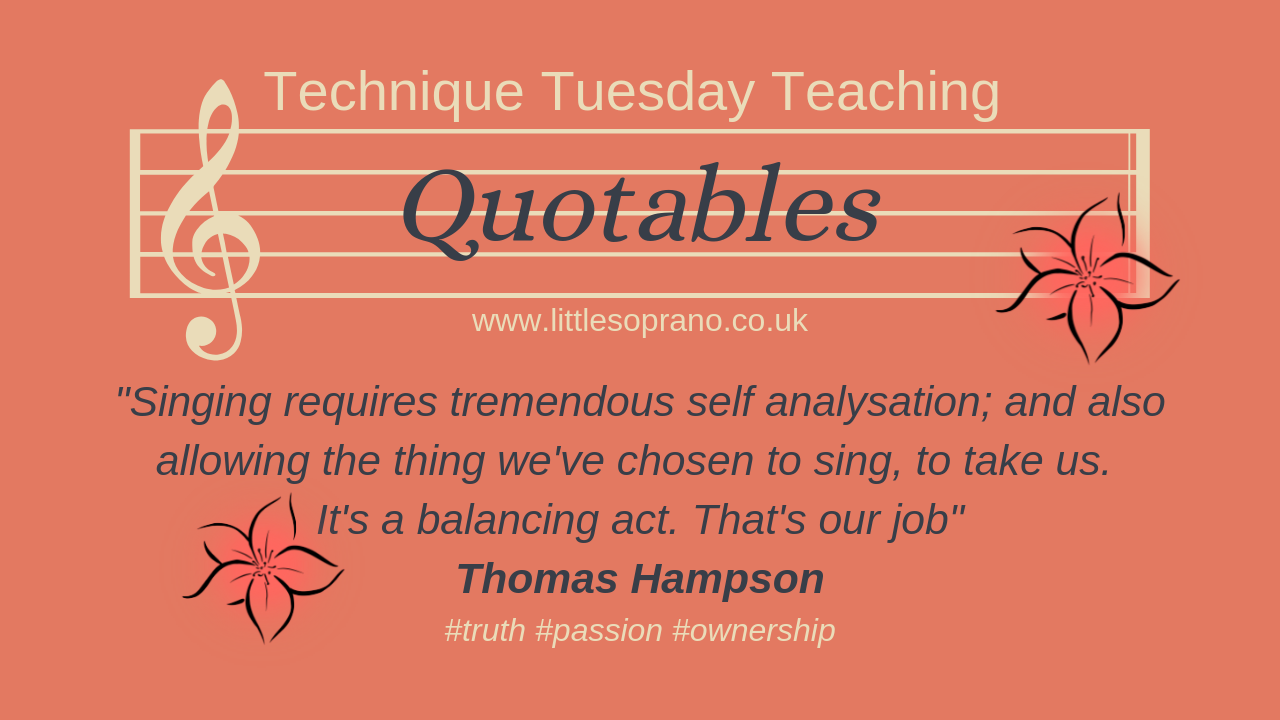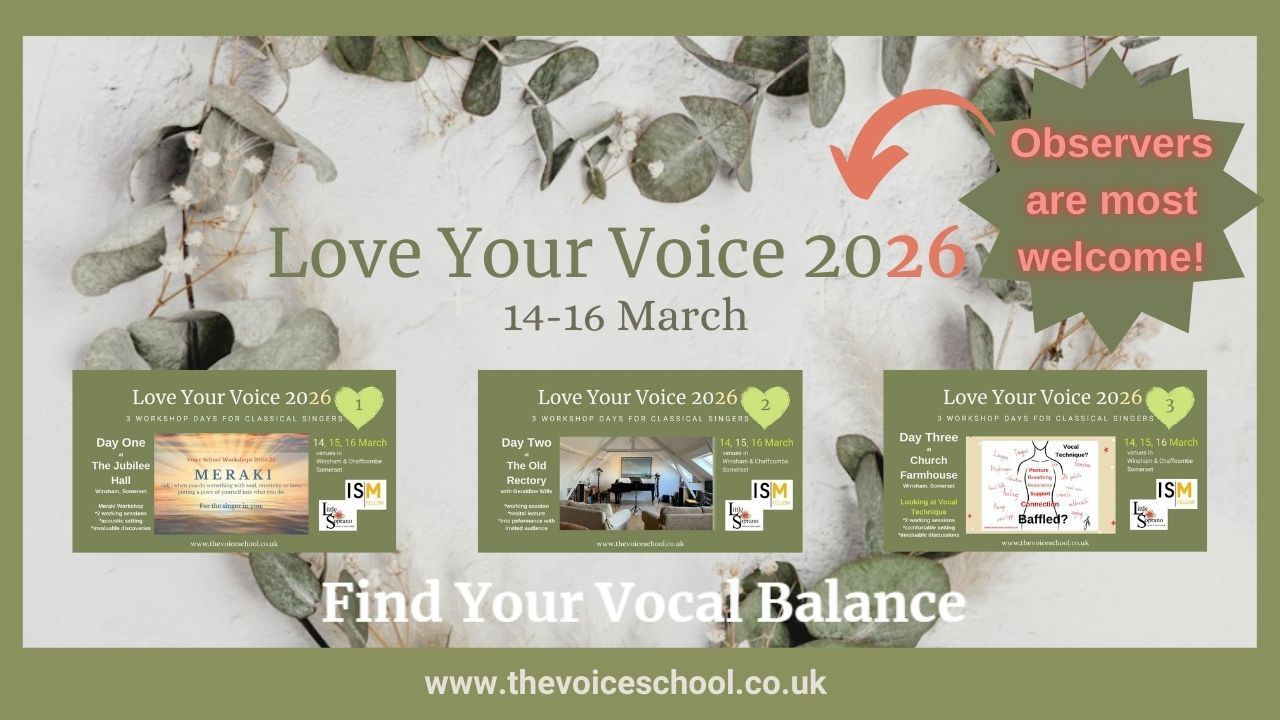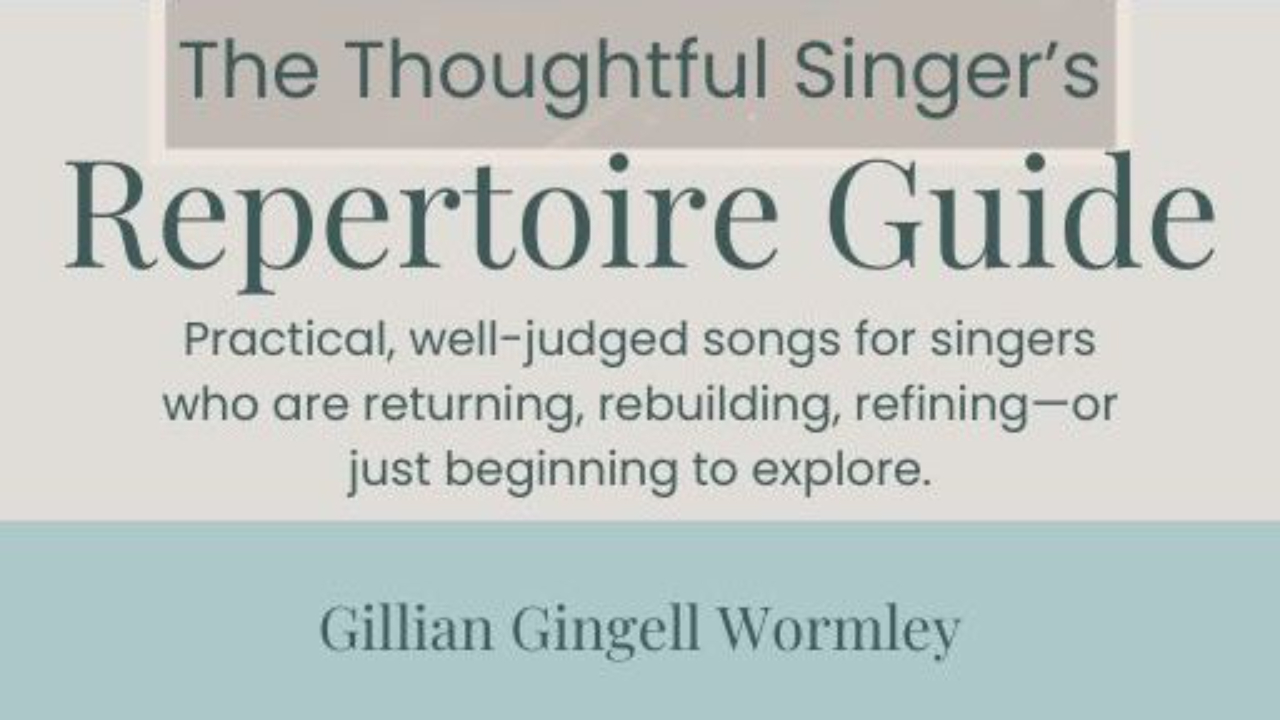What makes you classical singer? Do you have stickability?

As a professional classical singer, I write about vocal technique a lot. Of course, I would, as I am also a voice teacher. I've come to where I am now through a very natural journey of my own - study, performance, more study, woven doggedly around my other life happenings.
Always a personal quest (no one was pushing me) - I have felt drawn along, pulled happily by my simple love of communicating through the physicality and marriage of words and music - and the need to do it better. It's an infectious love, that I have for many years sought to share with other like-minded souls, who have their own quest and who are curious too.
Where do you start?
As a professional musician with a lifetime of technical vocal learning behind me and a trusty ongoing pursuit of future perfection in front of me, I regularly invest in telling my students to be at ease with where they are on their vocal journey. At ease, but not too comfy. To forgive their vocal imperfections BUT also be inquisitive, and questioning about the WHY. Be precise with how they invest their learning time when winkling out precious moments to focus on what they hope to achieve in their learning.

In 2013, I blogged a link to Joshua Foer’s wise words above and thereby also to a fabulous Brain Pickings post, by Maria Popova. It was called: The Psychology of Getting Unstuck: How to Overcome the “OK Plateau” of Performance & Personal Growth. In a nutshell, it seemed to set out everything so clearly and I at once recognised my own vocal-learning journey in there, one which I built over the years around ‘Life’ and all its uncontrollable haphazardness. It was hard to maintain - but my focus, my resolve was to unravel technical mysteries and smooth out my vocal imperfections. I was not content to just be OK with learning my craft. If you can relate at all, this is a great read.
But it's not for everyone, because you've got to have stickability. Do you have stickability?

So - who might qualify to give classical singing a shot?
The answer is simple: anyone who wants to learn the skill and connect with what’s required to do it well.
Notice my use of the word connect. It means stepping forward and being willing to absorb, learn, feel and recognise. And that’s across the board.
At any level of development, whether a complete novice or a more accomplished singer, there is much to learn about stepping back and taking another really good look and noticing new things about The Journey.

This was always the view for me as I waited for a session with my vocal coach in his studio in Notting Hill. Always nervous, even after thirty-plus years of the same routine.
I couldn’t even begin to guess the number of times I’d sat in that same spot on the landing, waiting in trepidation about what would be required of me on the other side of that door! I’ve passed some very famous faces as they’ve come down those stairs and I’ve felt dwarfed by the glorious sounds drifting out of the studio, as I sat humbly waiting.
Stepping through the door I had to again allow myself to make mistakes, accept criticism, absorb information, rethink where I was coming from, persevere BUT above all focus and ENJOY my journey as a singer.
It’s all part of the JOY - isn’t it? Is that how you might see it?
And in all the years I've taught so many different people introducing the intricacies of the singing world to them, opening the doors to a guaranteed path of a personal, safe vocal journey of exploration and discovery - it never ceases to amaze me how things come full circle and you find yourself back at the beginning again ... Neuroplasticity needs time to work its magic.
Are you a tenacious person? How much does your voice mean to you? How patient can you be, how willing are you to immerse yourself in the JOY of discovery of your true, authentic voice?
I know quite a few singers who may imagine themselves to be proficient, but are not in fact true devotees to the unavoidable acquisition of good, understood vocal technique. These are singers who dwell on the OK Plateau, as Joshua Foer explains in his article (linked above). This is where there is the potential to actually stop learning because it feels like they have arrived at that comfortable spot.
In the 1960s, psychologists identified three stages that we pass through in the acquisition of new skills. We start in the “cognitive phase,” during which we’re intellectualizing the task, discovering new strategies to perform better, and making lots of mistakes. We’re consciously focusing on what we’re doing. Then we enter the “associative stage,” when we’re making fewer errors, and gradually getting better. Finally, we arrive at the “autonomous stage,” when we turn on autopilot and move the skill to the back of our proverbial mental filing cabinet and stop paying it conscious attention.
Essential learning: much necessary repetition of the basics. Understanding the links between the fundamental 5 exercise ideas (posture, breathing, onset, lip trills and sirening/ng hums) always making sure to check in with the body rather than listening to and monitoring what we think we hear.
… expert musicians tend to focus on the parts that are hard, the parts they haven’t yet mastered. The way to get better at a skill is to force yourself to practice just beyond your limits.
I've been steadily building a library of helpful video tutorials on YouTube and this week shared video #9 to a playlist about learning basic classical skills:
In this video: #9 of potential list of 10 ...
- Tap into your physicality and energy
- Importance of the role of postural alignment
- Keeping your focus on the right things
- No pushing air - no jaw jutting
- Vowel centring
- The role of the singer from an audience's perspective
- Applying your learned vocal technique to your songs
Practice healthily and learn to maintain a consistent & growing gentle warm-up routine, covering the fundamental vocal technique tools like posture, breathing, onset, lip trills/body engagement, and sirening/resonance. Learn to trust how the body responds from the inside out for maximum vocal care and longevity of use. Your voice is a muscle; give it some guidedTLC.
Yep, the value of this lesson is huge. Keep on keeping on and pay attention.
Curious about singing basics? Let's get you started with the right learning tools.
Download my free need-to-know vocal essentials guide for singers, vocal technique principles simply explained.







